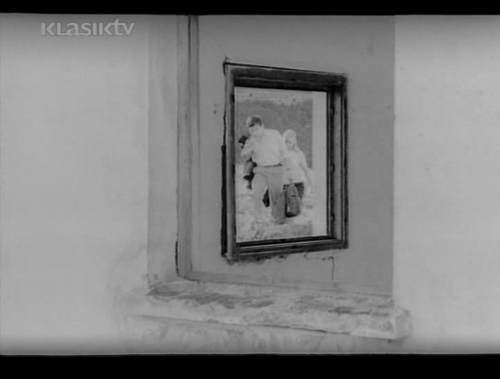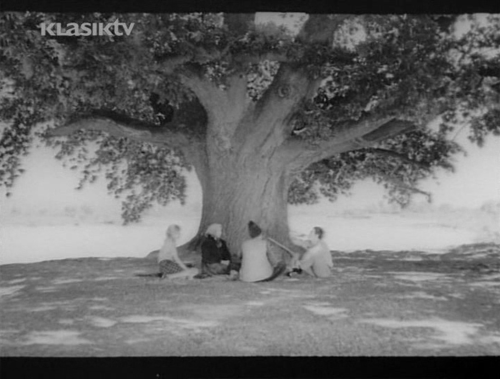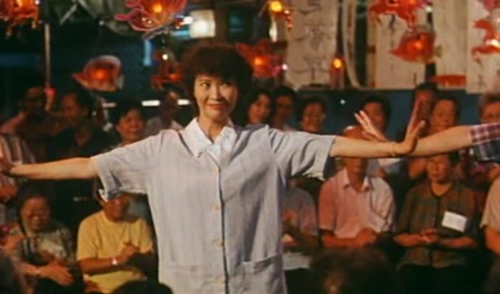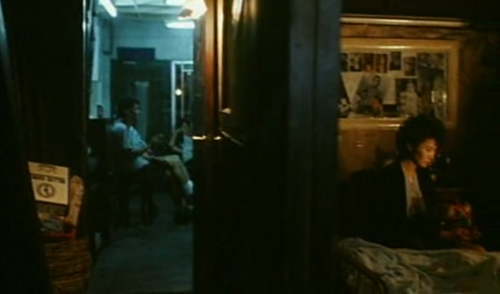Summer Snow (1995) vs. The Feverish Years (1966)
Summer Snow (1995) vs. The Feverish Years (1966)
Summer Snow (Ann Hui, 1995) vs. The Feverish Years (Dragoslav Lazić, 1966)
Vote for either x1995 or x1966 (italicization unnecessary).
The deadline for voting is 12 a.m. EST on Wednesday, April 10.
If you need access to the films, please let us know.
Vote for either x1995 or x1966 (italicization unnecessary).
The deadline for voting is 12 a.m. EST on Wednesday, April 10.
If you need access to the films, please let us know.
-
Mario Gaborovic
- Posts: 253
- Joined: Fri Jan 04, 2019 8:54 am
I'd call my pick a "working class blues".
Hey is this match-up being boycotted or something?
i'm watching summer snow -- will vote in a day or two
i see at least a couple of other people are watching them too
i see at least a couple of other people are watching them too
Otherwise for me: I've seen Mario's movie. Lencho finds the ending "exceptionally oblique and detached" but I thought the ending the most memorable part by far of what was otherwise a fairly common lost working-class youth in the City pic. I remember trying to watch the Ann Hui - a director whose films I usually like well enough without ever being remotely excited by - for the '95 poll and finding something irritatingly phony about it, so I didn't finish it, but perhaps that was just my mood at the time so will give it another go. Tonight perhaps.
Anyway, my duel's only got a few votes so far. This "Cup" just doesn't have the enthusiasm of formers, or maybe there just aren't enough chimps since the move to new site.
Anyway, my duel's only got a few votes so far. This "Cup" just doesn't have the enthusiasm of formers, or maybe there just aren't enough chimps since the move to new site.
Have a look at all the picnics of the intellect: These conceptions! These discoveries! Perspectives! Subtleties! Publications! Congresses! Discussions! Institutes! Universities! Yet: one senses nothing but stupidity. - Gombrowicz, Diary
Unfortunate but true.
x1995
really enjoyed both, but the emotional crux of Summer Snow won me over
really enjoyed both, but the emotional crux of Summer Snow won me over
x1995
I also enjoyed both, but I think the Hui is quite special in portraying a family dynamic that doesn't usually get a lot of play, and I love how economically that dynamic is set up in the opening scenes.
I also enjoyed both, but I think the Hui is quite special in portraying a family dynamic that doesn't usually get a lot of play, and I love how economically that dynamic is set up in the opening scenes.
x1995
Been busy so it took longer to find time for these two. Tough to choose between them as well, I found both to be very intriguing in different ways.


I don't think I ever got an adequate grasp on The Feverish Years, perhaps due to my lack of knowledge about Yugoslavia but maybe also due to the film’s intentionally distancing formal mechanics, which complicate the ostensible simplicity of the narrative. Here's some thoughts about how the camera movement is utilized from my letterboxd entry:
“From canvasing paint-cracked walls to wide open acres, the film's camera movement remains motivated by a certain physicality, as if tethered to the performers’ bodies. As a result, the first half carries an almost claustrophobic proximity - from the opening suds-soaked shower sequence to Marija busily moving lunchroom platters to the smokey boozy bender at Mirko’s flat. Whereas these scenes entrap our main characters amongst the surrounding bodies, Mirko’s date with Marija in the projection booth is quite the opposite, a montage of distant gazes as they watch, from across the theater, a scene from The Birds (1963). The intercutting of their back and forth glances with Tippi Hedren shielding herself in the phone booth before its exterior cracks under the onslaught outside and she’s pulled into a building, seems to externalize this sheltered moment under the chaos of their own lives. As the mid-section follows this thread, their evening stroll - “I thought we’d take a walk. There’s no one around” - and their short rooftop apartment excursion (spoiled by the return of Mirko’s friend), shift the camera's intrusiveness into intimacy, becoming an embodiment of their passion, rotating around them in the street lights and embracing them on the roof. Their eventual retreat to the countryside finds the camera increasingly detached - framing them from afar through window frames and suspicious stares at arms-length. Abandoning the immersive space of the city, they enter a space in which they have become the outsiders, observed with skepticism by the villagers as they walk through town, and by the school children that Mirko is now supposed to teach.”
But this is only scratching the surface and doesn’t even touch on the curious sound design, which carries a certain ‘musique concrete’-like texture at times that further abstracts scenes like the movie theater date. It's unfortunate that there seems to be so little on the web in English about the film and its director, I'd be curious to learn more about it.


In terms of my own personal preference, I’ll go with Summer Snow, which manages to both express a sympathetic portrait while also subtly complicating its surface.
"Approaching the cusp of the Handover, Hui’s portrait of a Hong Kong family dealing with their grandmother’s death and grandfather Lin Sun’s alzheimer's simultaneously becomes an expression of how “a modernity that is entrepreneurial and technology-led is seen as subject to amnesia, as disabling in its way, as the pathology of a traditionalism that is ghostly - like the patriarch, a captive of the dead past.” (Elaine Yee Lin Ho, Women on the Edges of Hong Kong Modernity: The Films of Ann Hui). The tensions unfurled under the strain of caring for Lin become manifold and interwoven through the other family member’s domestic/business and personal/social lives yet are guided by a gentle comedic hand under Ann Hui’s attentive vision and Josephine Siao’s leading performance. Against an unspoken backdrop of societal change, the generational rift is expressed as clearly gendered through May’s frustration with Lin’s deeply-rooted patriarchal attitudes as through her unspoken concerns when a younger female employee’s computer savvy threatens to replace her extensive memory of her company’s accounts. A similar rift in shifting spousal roles is observed in May and Bing’s martial tensions which are both revealed (when Bing comes home drunk) and mended (when May cares for Bing’s bruises) by the shared responsibility of assisting Lin. By honing in on the family’s difficulty to care for their elderly grandfather, Hui subtly alludes to the privilege within their lives as well. May’s unselfishness is held in counterpoint to her sister Lan, who further disrupts rather than mends the damaged spaces she occupies, whether it’s her melodramatic entrance bursting in at the grandmother’s funeral or her impatient suggestion to euthanize Lin so she may return to work in Taipei. However Lan’s preoccupations with her work life are also mirrored in May’s own words to Bing when they argue while bathing Lin - “My work is the best thing in my life, I shall never give it up!” The closure provided to various subplots at the end of the film (May and the company, Bing’s handling of an overeager driving-test taker) is significantly attached not to what one might expect, the passing on of tradition, but in another passing which provides the catalyst for May to come to terms with her unresolved grief and subsequent allow the family to embrace one another."
The film may seem a little easy in its various resolutions toward the end but Hui's direction and Josephine Siao's very strong performance struck me on a level that's more ambivalent than the film initially lets on.
Been busy so it took longer to find time for these two. Tough to choose between them as well, I found both to be very intriguing in different ways.


I don't think I ever got an adequate grasp on The Feverish Years, perhaps due to my lack of knowledge about Yugoslavia but maybe also due to the film’s intentionally distancing formal mechanics, which complicate the ostensible simplicity of the narrative. Here's some thoughts about how the camera movement is utilized from my letterboxd entry:
“From canvasing paint-cracked walls to wide open acres, the film's camera movement remains motivated by a certain physicality, as if tethered to the performers’ bodies. As a result, the first half carries an almost claustrophobic proximity - from the opening suds-soaked shower sequence to Marija busily moving lunchroom platters to the smokey boozy bender at Mirko’s flat. Whereas these scenes entrap our main characters amongst the surrounding bodies, Mirko’s date with Marija in the projection booth is quite the opposite, a montage of distant gazes as they watch, from across the theater, a scene from The Birds (1963). The intercutting of their back and forth glances with Tippi Hedren shielding herself in the phone booth before its exterior cracks under the onslaught outside and she’s pulled into a building, seems to externalize this sheltered moment under the chaos of their own lives. As the mid-section follows this thread, their evening stroll - “I thought we’d take a walk. There’s no one around” - and their short rooftop apartment excursion (spoiled by the return of Mirko’s friend), shift the camera's intrusiveness into intimacy, becoming an embodiment of their passion, rotating around them in the street lights and embracing them on the roof. Their eventual retreat to the countryside finds the camera increasingly detached - framing them from afar through window frames and suspicious stares at arms-length. Abandoning the immersive space of the city, they enter a space in which they have become the outsiders, observed with skepticism by the villagers as they walk through town, and by the school children that Mirko is now supposed to teach.”
But this is only scratching the surface and doesn’t even touch on the curious sound design, which carries a certain ‘musique concrete’-like texture at times that further abstracts scenes like the movie theater date. It's unfortunate that there seems to be so little on the web in English about the film and its director, I'd be curious to learn more about it.


In terms of my own personal preference, I’ll go with Summer Snow, which manages to both express a sympathetic portrait while also subtly complicating its surface.
"Approaching the cusp of the Handover, Hui’s portrait of a Hong Kong family dealing with their grandmother’s death and grandfather Lin Sun’s alzheimer's simultaneously becomes an expression of how “a modernity that is entrepreneurial and technology-led is seen as subject to amnesia, as disabling in its way, as the pathology of a traditionalism that is ghostly - like the patriarch, a captive of the dead past.” (Elaine Yee Lin Ho, Women on the Edges of Hong Kong Modernity: The Films of Ann Hui). The tensions unfurled under the strain of caring for Lin become manifold and interwoven through the other family member’s domestic/business and personal/social lives yet are guided by a gentle comedic hand under Ann Hui’s attentive vision and Josephine Siao’s leading performance. Against an unspoken backdrop of societal change, the generational rift is expressed as clearly gendered through May’s frustration with Lin’s deeply-rooted patriarchal attitudes as through her unspoken concerns when a younger female employee’s computer savvy threatens to replace her extensive memory of her company’s accounts. A similar rift in shifting spousal roles is observed in May and Bing’s martial tensions which are both revealed (when Bing comes home drunk) and mended (when May cares for Bing’s bruises) by the shared responsibility of assisting Lin. By honing in on the family’s difficulty to care for their elderly grandfather, Hui subtly alludes to the privilege within their lives as well. May’s unselfishness is held in counterpoint to her sister Lan, who further disrupts rather than mends the damaged spaces she occupies, whether it’s her melodramatic entrance bursting in at the grandmother’s funeral or her impatient suggestion to euthanize Lin so she may return to work in Taipei. However Lan’s preoccupations with her work life are also mirrored in May’s own words to Bing when they argue while bathing Lin - “My work is the best thing in my life, I shall never give it up!” The closure provided to various subplots at the end of the film (May and the company, Bing’s handling of an overeager driving-test taker) is significantly attached not to what one might expect, the passing on of tradition, but in another passing which provides the catalyst for May to come to terms with her unresolved grief and subsequent allow the family to embrace one another."
The film may seem a little easy in its various resolutions toward the end but Hui's direction and Josephine Siao's very strong performance struck me on a level that's more ambivalent than the film initially lets on.
like others i liked both but i'm going with
x1995
my mother is in early stage of alzheimer's and it's good to see a warmhearted, touching and funny look at it's devastating effects on family that avoids overt sentimentality for the most part. the lead actress' exasperated performance really made it work
x1995
my mother is in early stage of alzheimer's and it's good to see a warmhearted, touching and funny look at it's devastating effects on family that avoids overt sentimentality for the most part. the lead actress' exasperated performance really made it work
Last edited by rischka on Fri Apr 05, 2019 8:51 am, edited 1 time in total.
I still think Summer Snow is irritating, starting with the characters. Especially grating its "comic" scenes.
x1966
x1966
Have a look at all the picnics of the intellect: These conceptions! These discoveries! Perspectives! Subtleties! Publications! Congresses! Discussions! Institutes! Universities! Yet: one senses nothing but stupidity. - Gombrowicz, Diary
I'd like to participate as a viewer more, but the truth is I barely watch anything other than short films these days. Just don't find myself have 90-120 minutes straight that I can devote to cinema...much easier to watch 5 15-minute shorts on study breaks throughout the night. But I'm going to make an effort to watch this match, because I need to see more films by WOC, and need to see more films from the former Yugoslavia as well.
Two opposite ways of using cutting and montage
x1966
The Feverish Years is a great example of how cutting and montage can lead a film to compare and contrast different social scenarios and generational mindsets without ever openly talking about it.
1.We get to know the main characters' homes and life conditions by a subtle exploration of the faces and bodies via cutting in both, Mirko's brother's place and Marija's mother's apartment.
2.The scene at the projection booth and its intercutting work as an allegory and externalization, just as described by Arkheia.
3.By the same token, when Marija and Mirko have a night stroll, a man is chased by the (mental?) health institution guys, thus adding a speed + motion variation to the rhythm this situation previously had.
4.The presence of the troubled couple in Mirko's brother's place and at the train in the last part of the film, in both cases as a parallel situation, becoming another allegory or a twisted mirror for the events the main characters are living/could live.
5.The open ending with the main characters seen looking at each other in separate shots only connecting their sights and Mirko's eyes connecting with a shot of the countryside landscape.
Summer Snow on the other hand is dialogue-driven and on top of that, over-explained. Therefore, cutting and montage are merely allowed to intertwine scenes with different characters and spaces, without really challenging the viewer to build any space-time puzzle or to risk anything in regards to propose defying metaphors or allegories in any kind or to let us feel the time dimension in a singular way.
Thanks Mario, for bringing great films as always!!!
x1966
The Feverish Years is a great example of how cutting and montage can lead a film to compare and contrast different social scenarios and generational mindsets without ever openly talking about it.
1.We get to know the main characters' homes and life conditions by a subtle exploration of the faces and bodies via cutting in both, Mirko's brother's place and Marija's mother's apartment.
2.The scene at the projection booth and its intercutting work as an allegory and externalization, just as described by Arkheia.
3.By the same token, when Marija and Mirko have a night stroll, a man is chased by the (mental?) health institution guys, thus adding a speed + motion variation to the rhythm this situation previously had.
4.The presence of the troubled couple in Mirko's brother's place and at the train in the last part of the film, in both cases as a parallel situation, becoming another allegory or a twisted mirror for the events the main characters are living/could live.
5.The open ending with the main characters seen looking at each other in separate shots only connecting their sights and Mirko's eyes connecting with a shot of the countryside landscape.
Summer Snow on the other hand is dialogue-driven and on top of that, over-explained. Therefore, cutting and montage are merely allowed to intertwine scenes with different characters and spaces, without really challenging the viewer to build any space-time puzzle or to risk anything in regards to propose defying metaphors or allegories in any kind or to let us feel the time dimension in a singular way.
Thanks Mario, for bringing great films as always!!!
- Brotherdeacon
- Posts: 62
- Joined: Wed Dec 12, 2018 10:24 am
- Location: Los Angeles
x1966 Being somewhat cowardly, I'll merely ditto Karl's two cents (or 3 cents). I preferred The Feverish Years (1966) by quite a margin, due largely to its formal camera and editing usage, but even more so by its silence instead of rhetorical justifications for actions or even lack of actions during the second half of its running time. Most screenwriters and directors wouldn't have the courage to allow the imagery and background actions to carry an emotional story rather than lots of dialogue, conflict, resolution etc--the dramatic film language so many films depend upon (see Summer Snow). However, I must also remind anyone who doesn't know my taste, that I have a difficult time with comedic films, be it Hong Kong, Helsinki or Hyderabad. Thanks to both managers.
Last edited by Brotherdeacon on Tue Apr 09, 2019 9:03 am, edited 3 times in total.
- MatiasAlbertotti
- Posts: 100
- Joined: Mon Dec 17, 2018 3:37 am
x1995
Great movies both, thank you for sharing them!!
I do believe that The Feverish Years might be a "better" movie and has a lot of very interesting formal choices that contribute to build a great mise en scene and take narrative risks. From the sound to the choices on how to let the story breathe by taking a step back from traditional dialogue and structure.
Still my choice is for Summer Snow because it was a beautiful movie that resonated emotionally with me. We used to live with my maternal grandmother, and since my parents worked long hours, my brother and I spent a lot of time with her. When I was 18 she was diagnosed with Alzheimer, and Summer Snow captured the hardship that it is to care and look after someone with the disease, but it also and most importantly, is also captured the good parts of it. So even though I tried to be rational about my decision, I couldn't.
Great movies both, thank you for sharing them!!
I do believe that The Feverish Years might be a "better" movie and has a lot of very interesting formal choices that contribute to build a great mise en scene and take narrative risks. From the sound to the choices on how to let the story breathe by taking a step back from traditional dialogue and structure.
Still my choice is for Summer Snow because it was a beautiful movie that resonated emotionally with me. We used to live with my maternal grandmother, and since my parents worked long hours, my brother and I spent a lot of time with her. When I was 18 she was diagnosed with Alzheimer, and Summer Snow captured the hardship that it is to care and look after someone with the disease, but it also and most importantly, is also captured the good parts of it. So even though I tried to be rational about my decision, I couldn't.
Voting closed! Summer Snow (1995) wins!
Sorry that I didn't get a chance to watch your picks, guys. Right in the midst of exams right now. I WILL watch both of them soon though, as they both seem fantastic and the write-ups here have only made me more excited to check them out.
